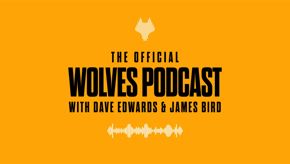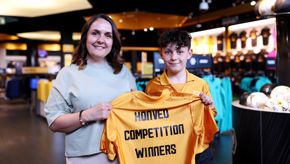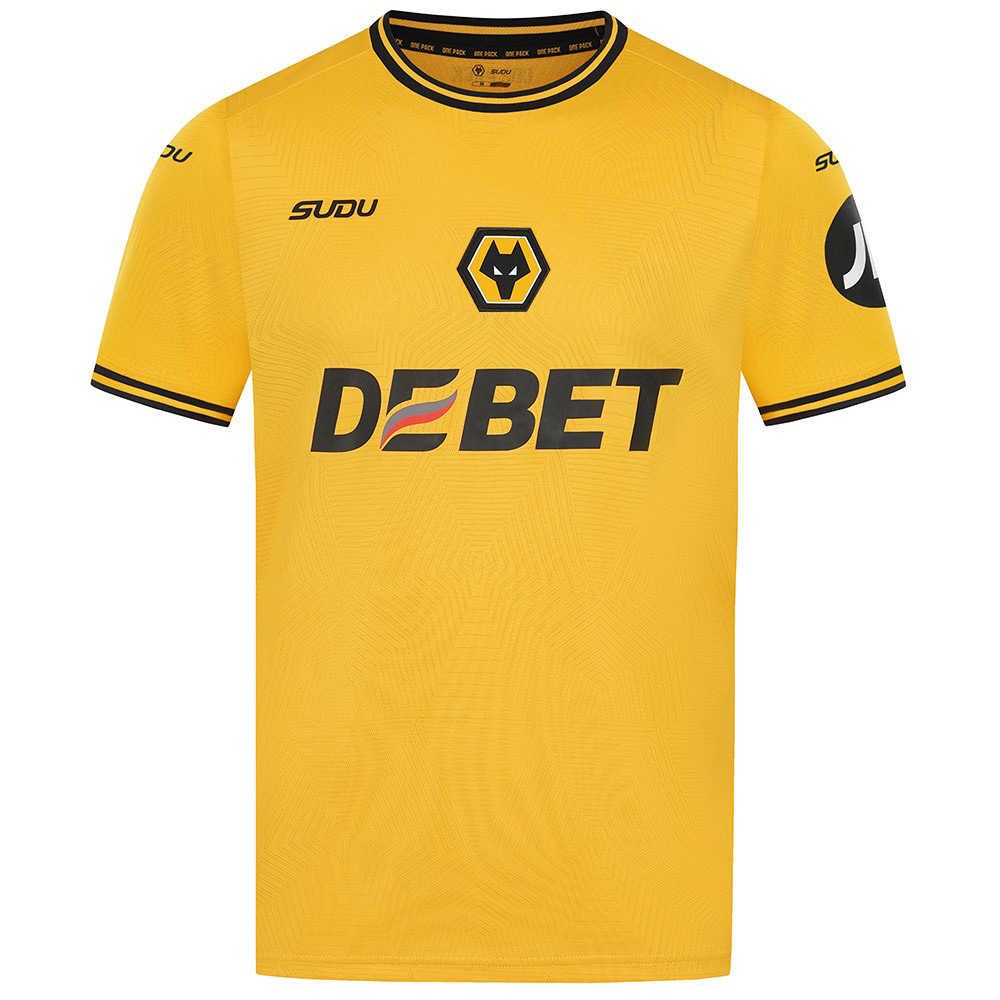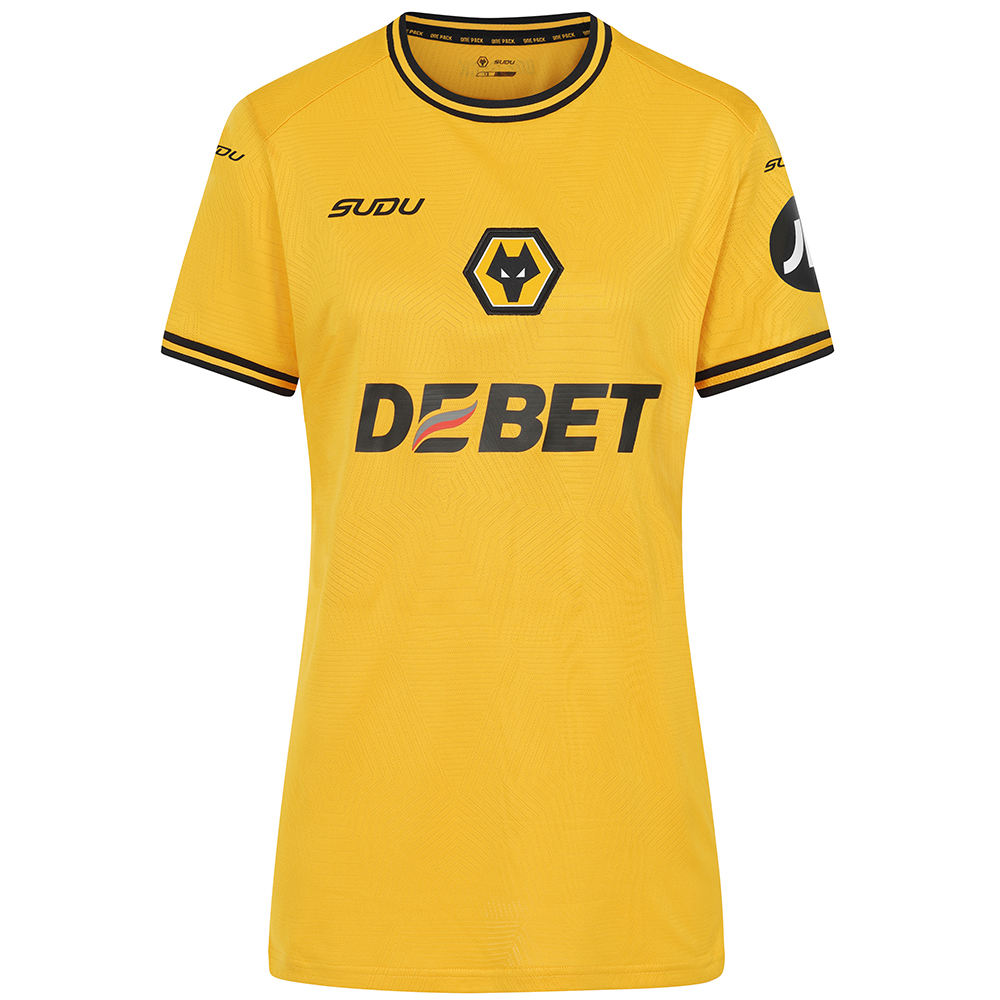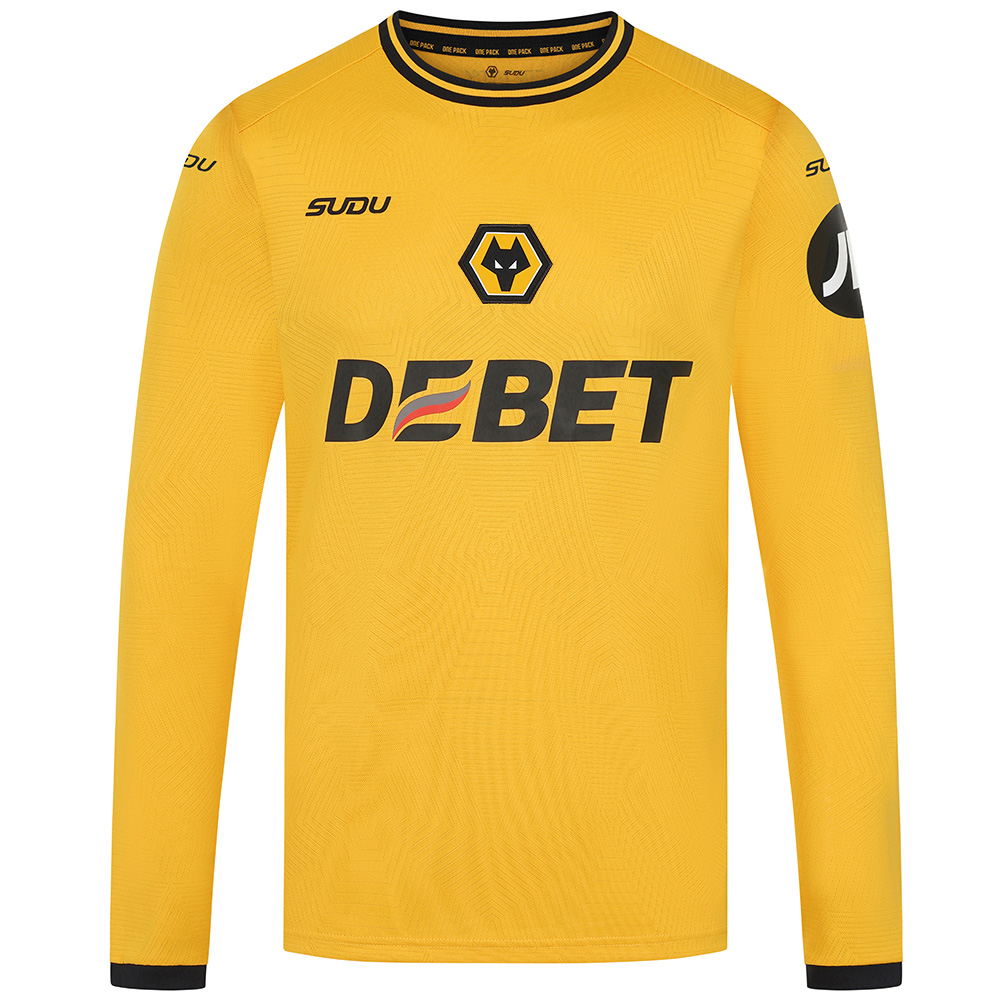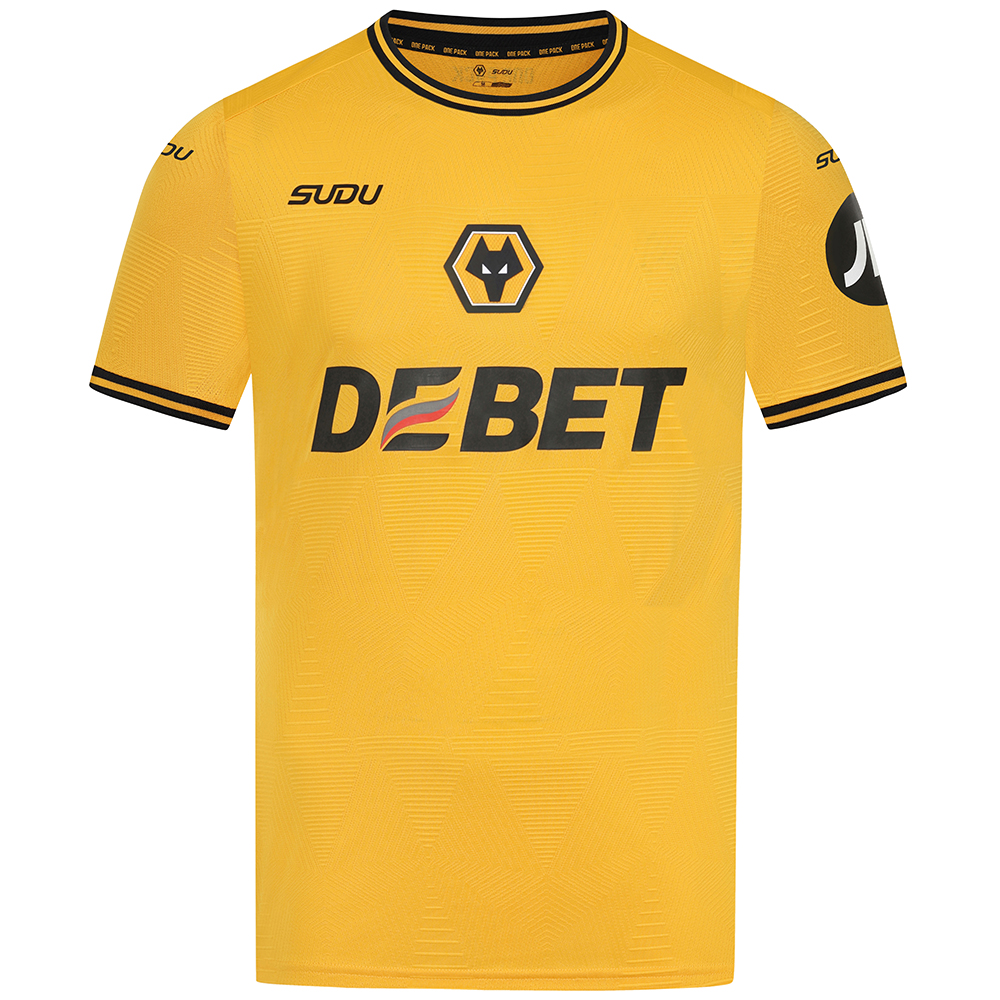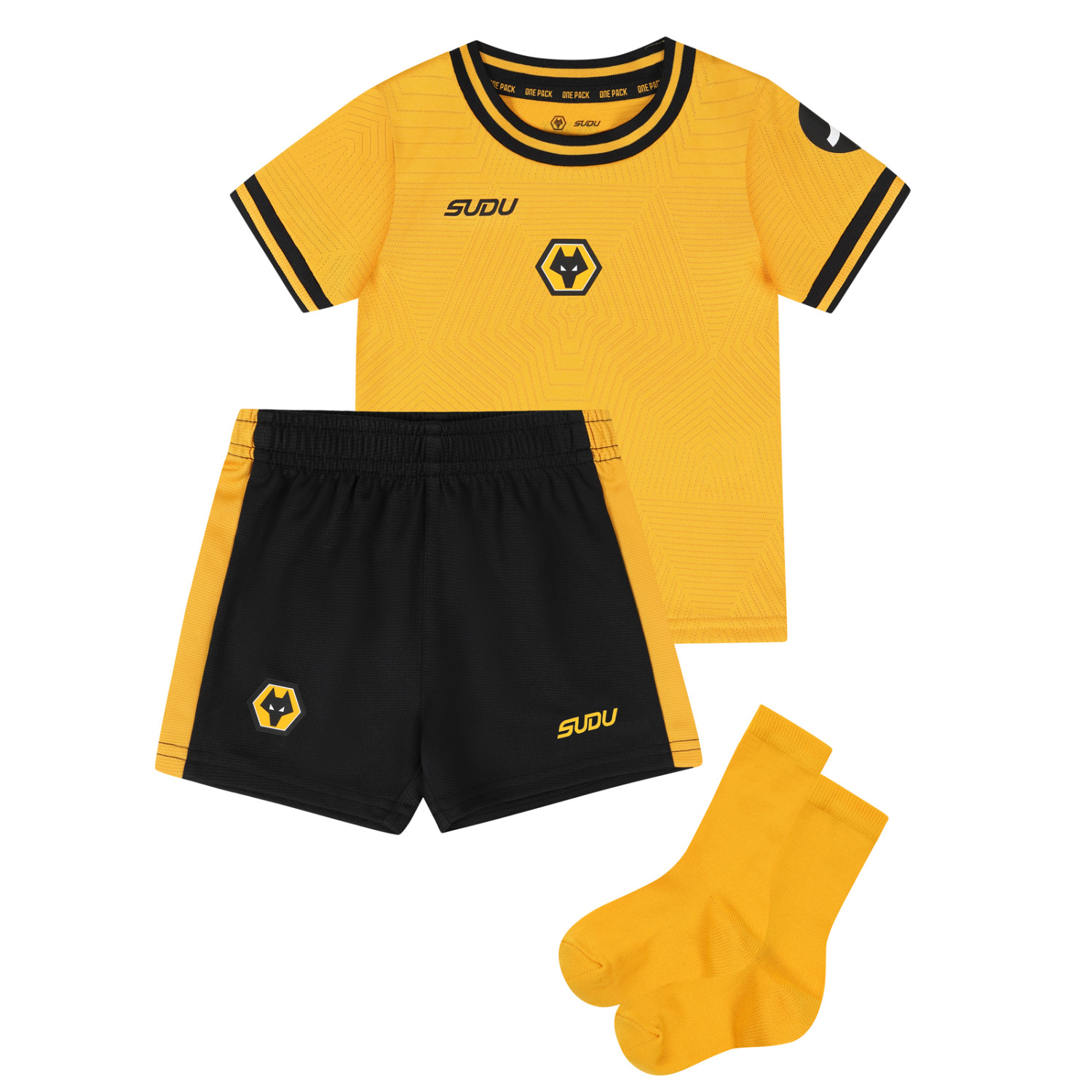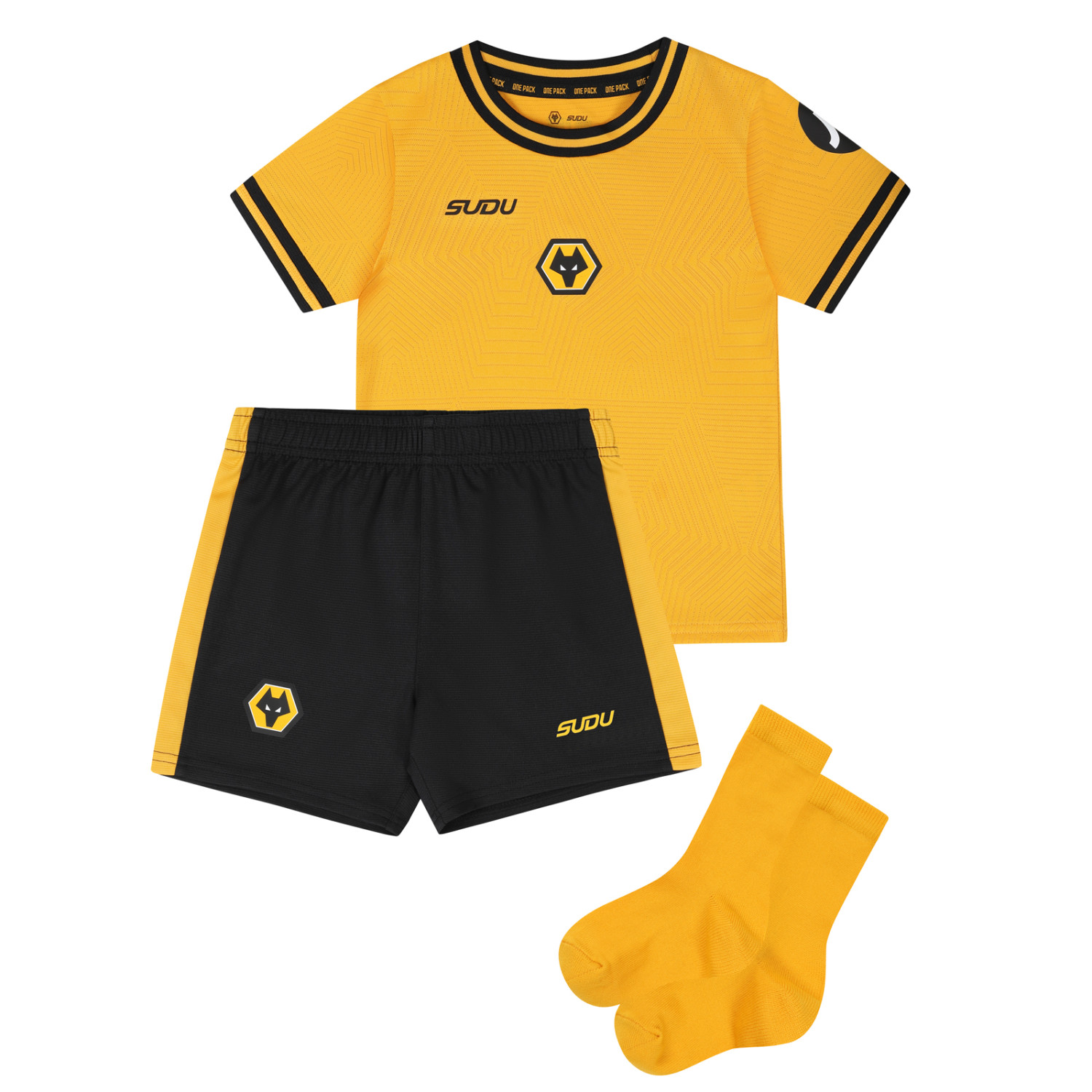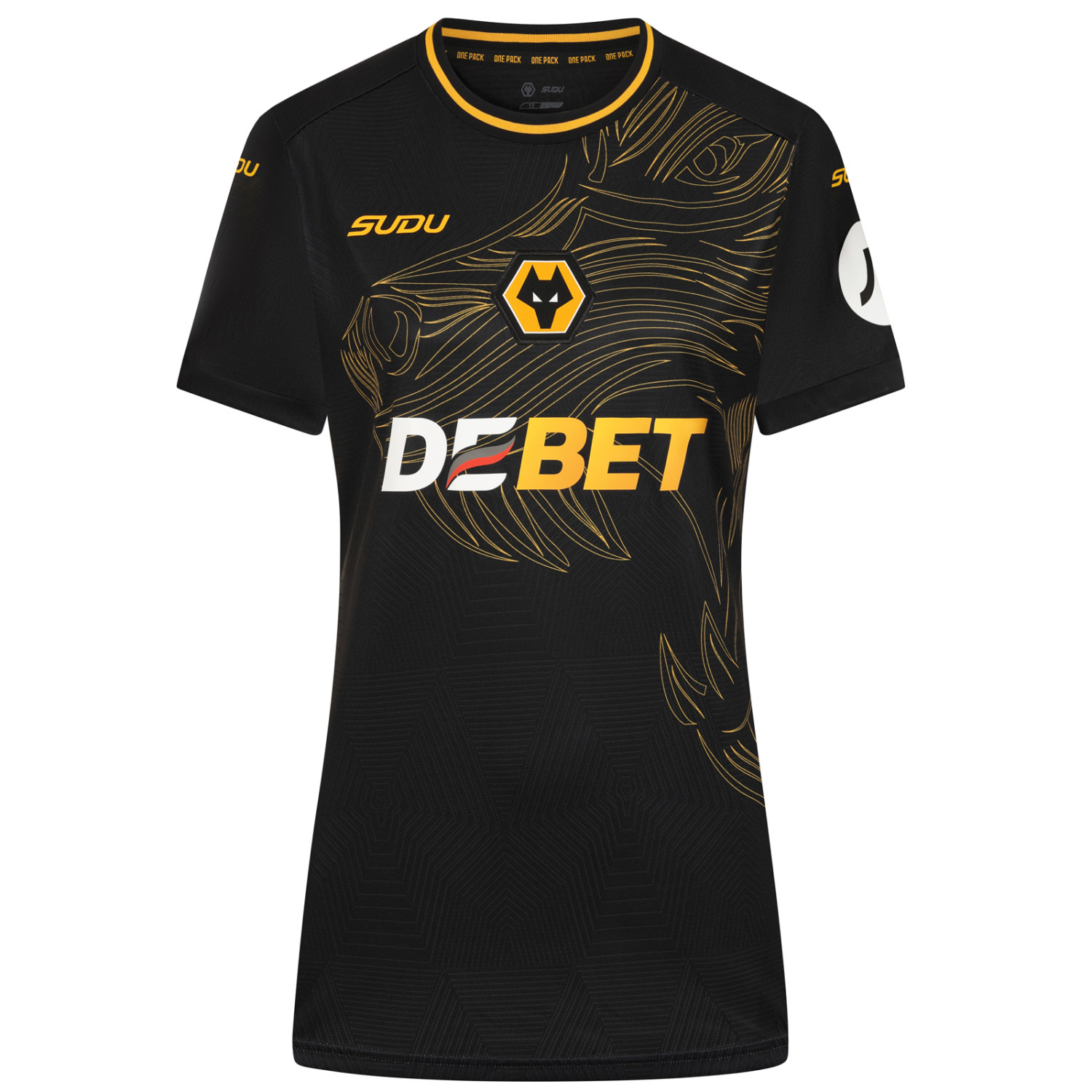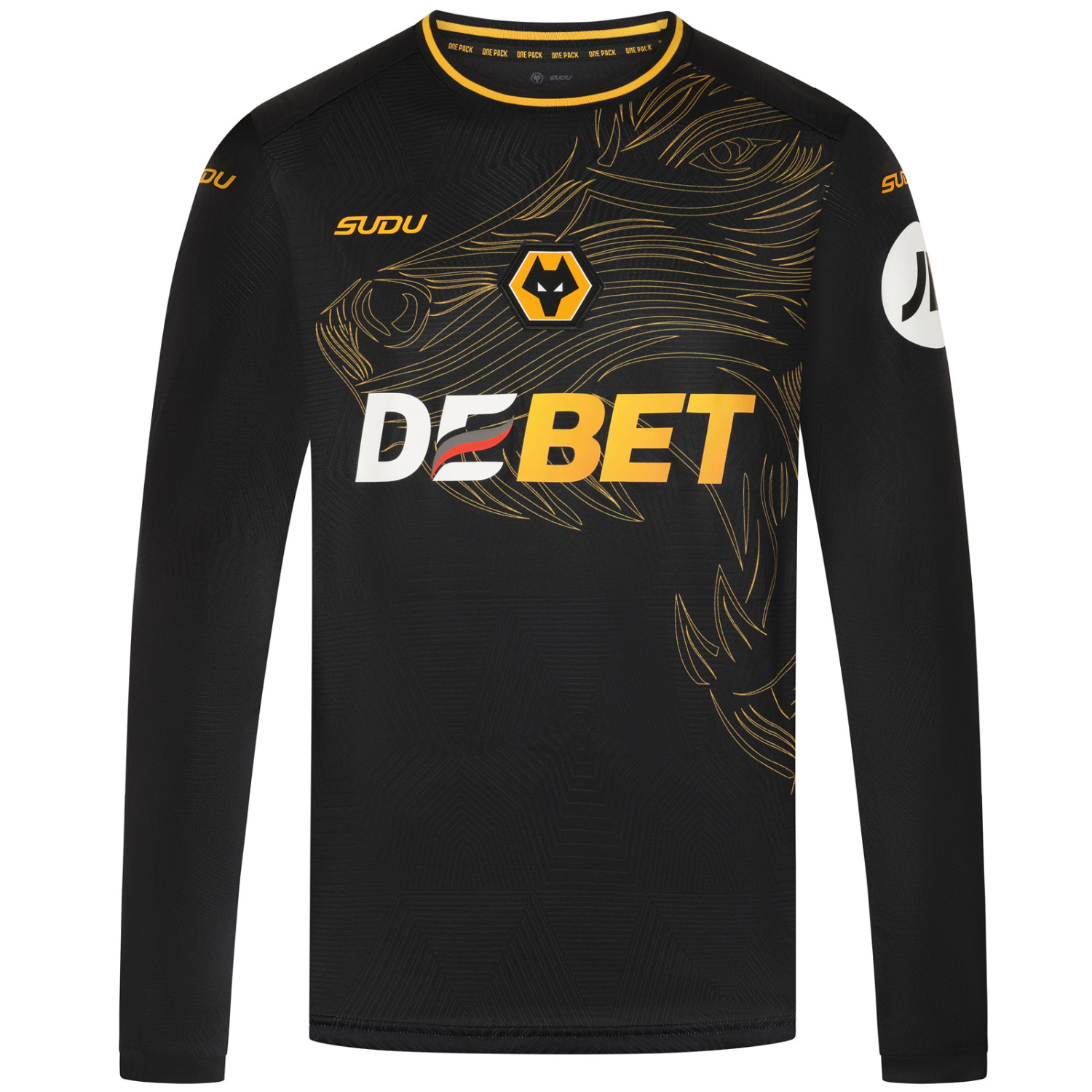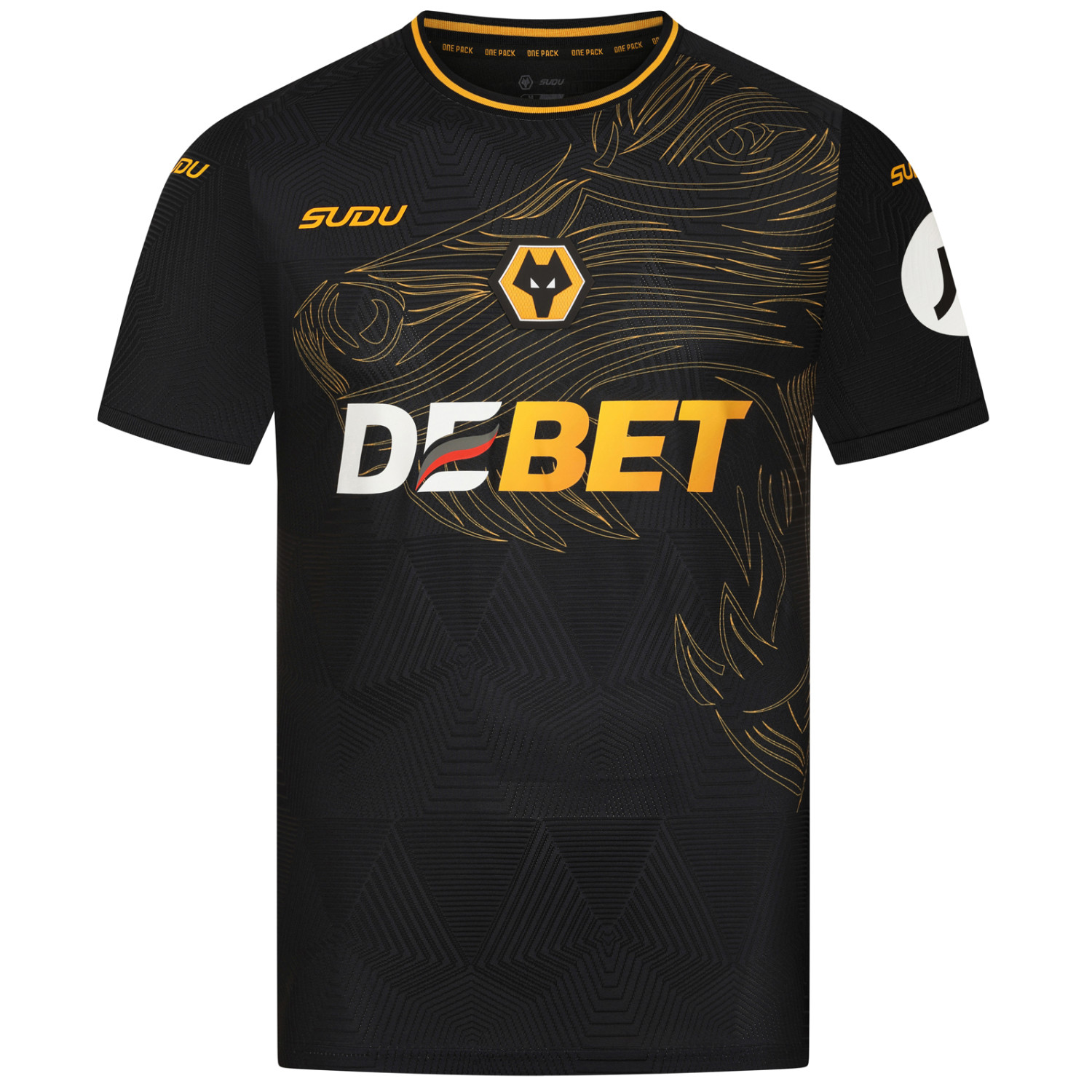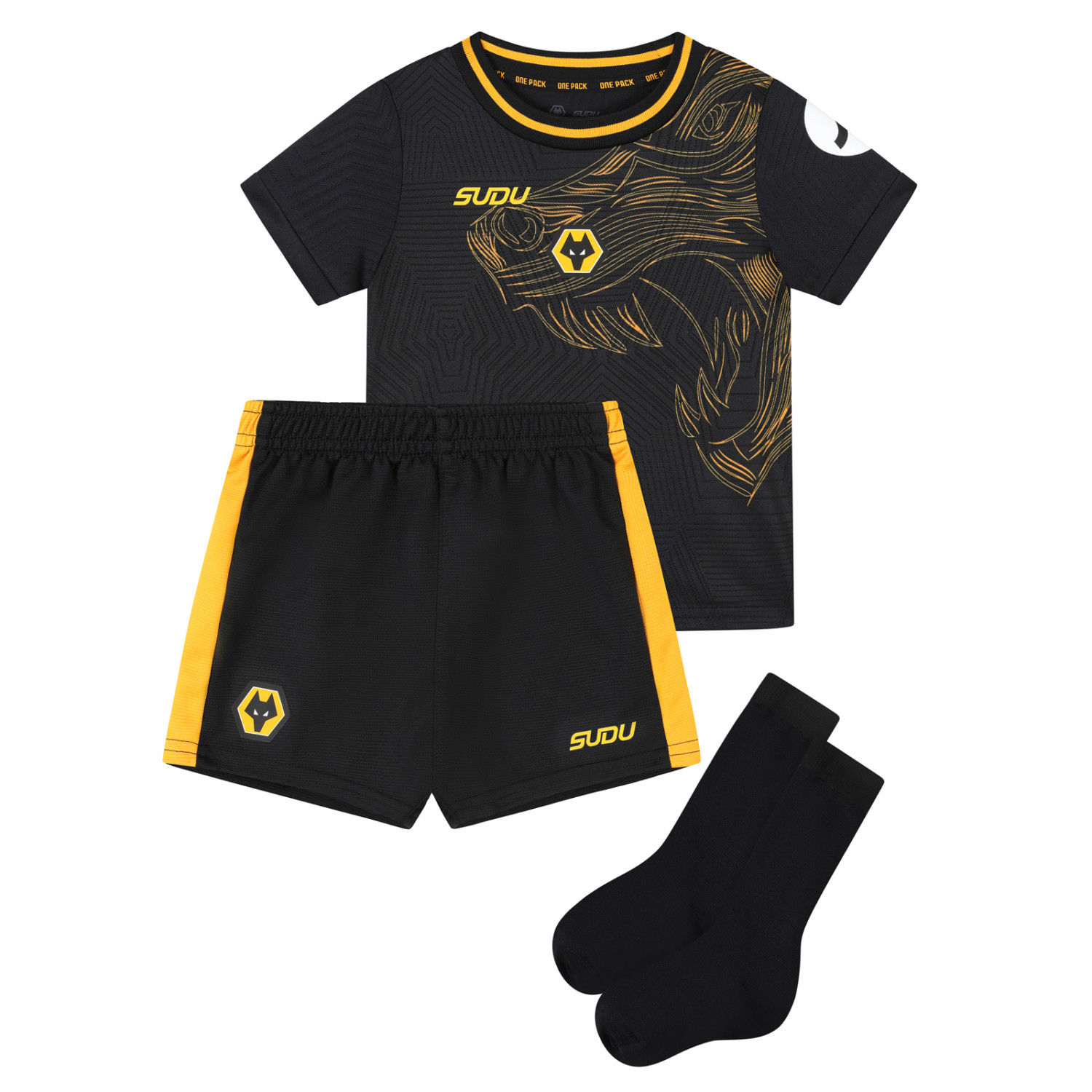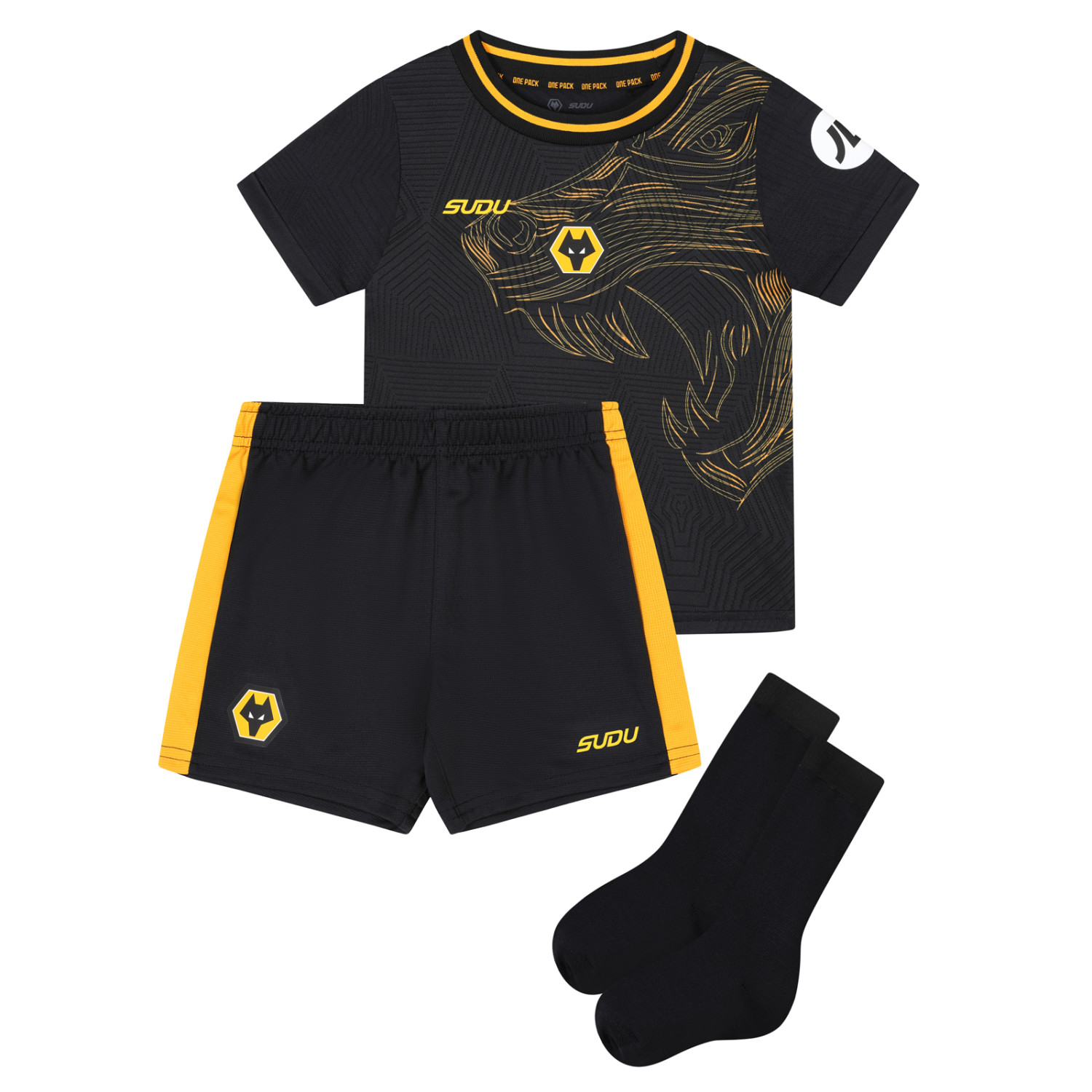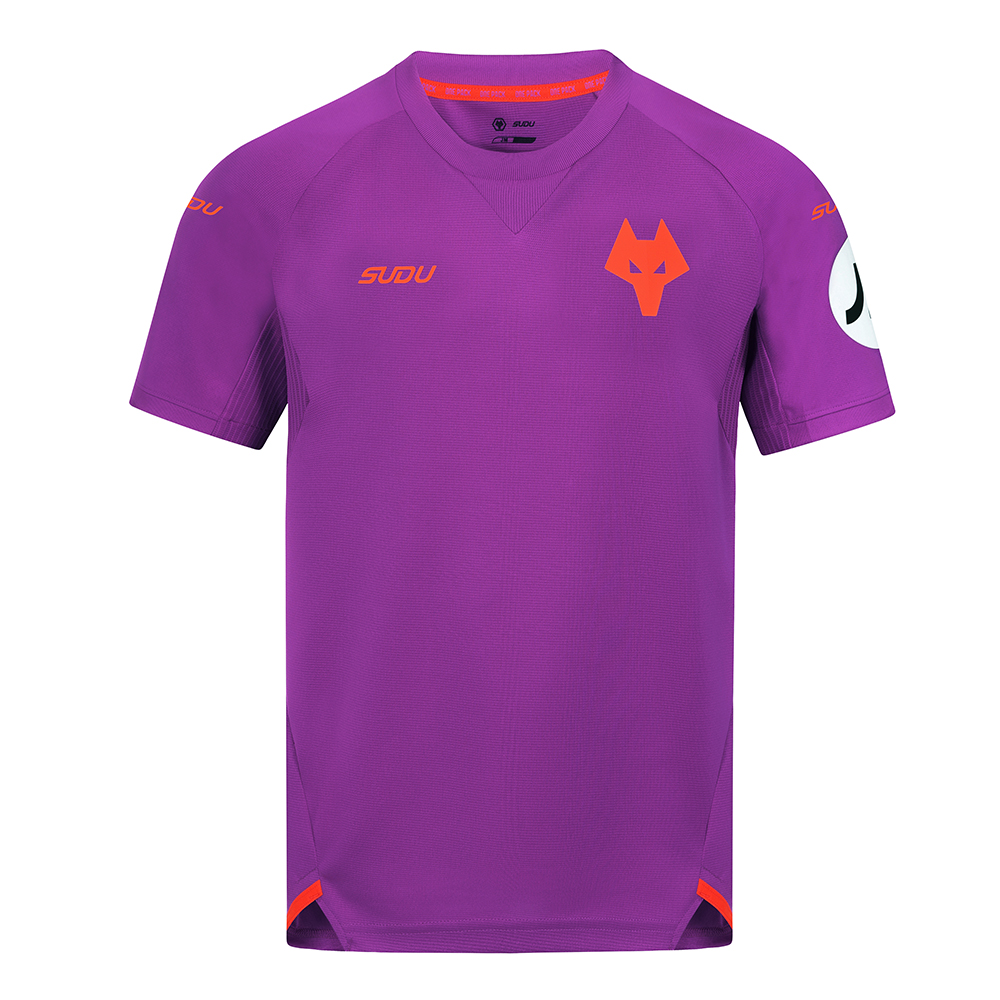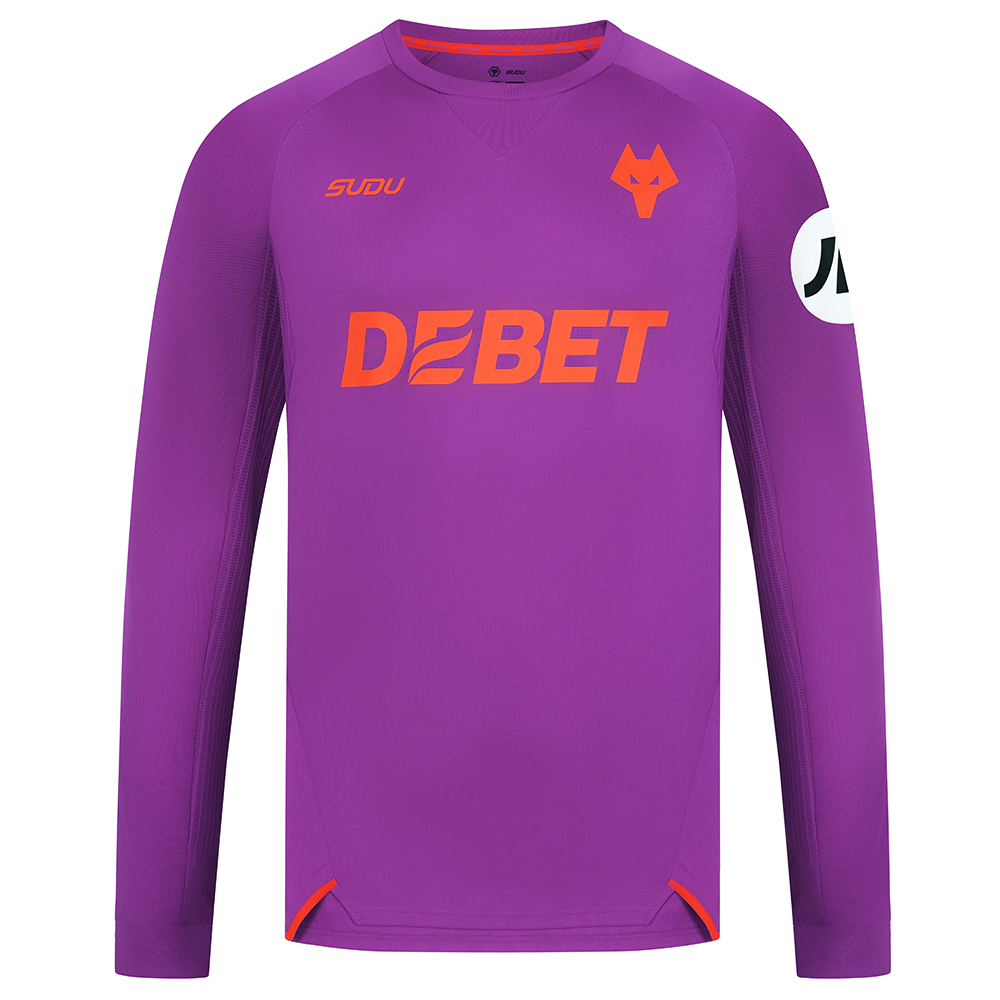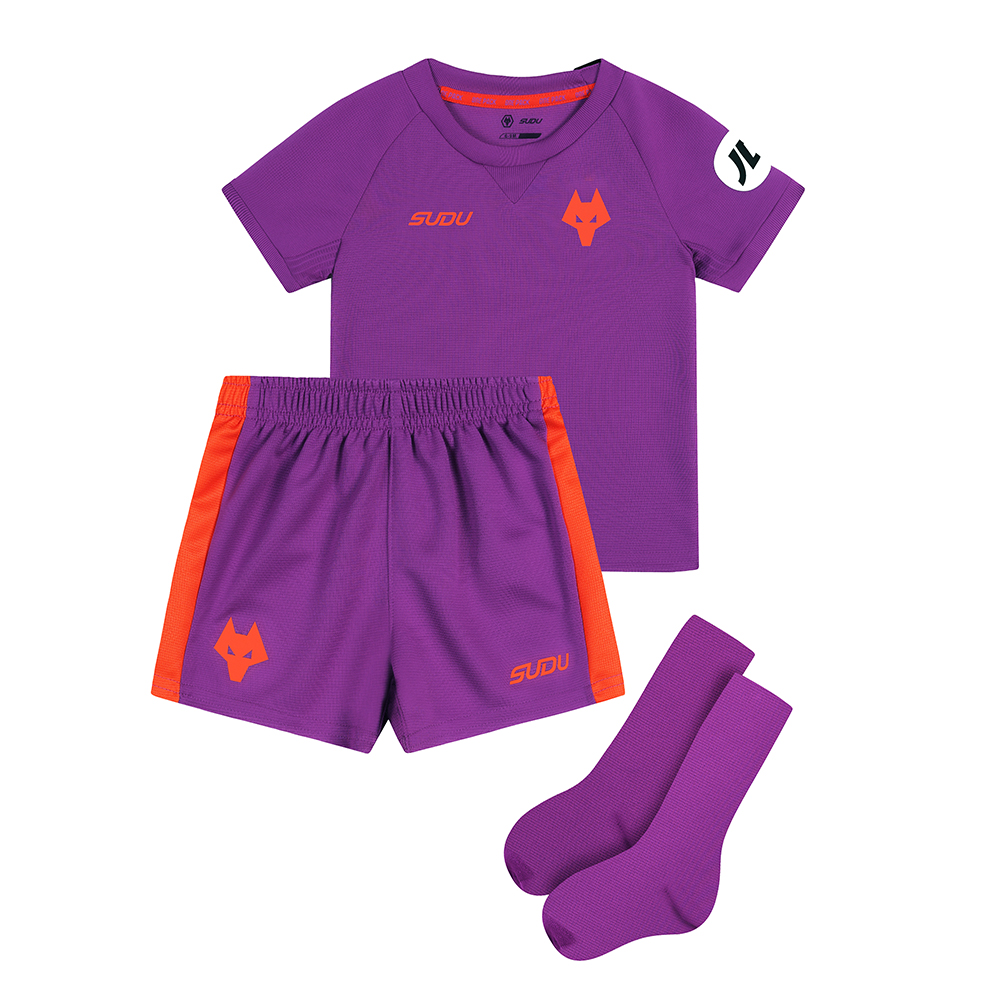WATCH
LISTEN
READ
Johnny Phillips: Vinny, last time we were sat in this stand, or perhaps horizontal in this stand, was for the Molineux Sleepout. A good event that, wasn’t it?
Vinny Clark: It was. It was good fun but also really important and for a good cause. It’s the second time I’ve done it, a really rewarding night. It hits home the struggles that people have but it’s a really humbling experience and one that I thought was a good night.
JP: Yeah, I agree, it would be good to come back next year. A lot of your remit here at Molineux covers the match-going supporter and directly impacts them. If we start off getting straight into the questions, one concerns the museum and relaunch of that, what sort of impact has that made?
VC: Yeah, it’s been really successful for us. I think just purely from a numbers perspective, pre-Covid we were around 3,000 visitors per year, since we’ve sort of refreshed it in there, we’re up to about 5,500 this year, so more people through the door. I think the challenge we’ve got is, historically, the museum hasn’t changed much and if you’ve been once, you’ve kind of ticked it off, you’ve done it, you don’t need to go back. What we’re trying to do is find ways of keeping content interesting, giving people reasons to visit us a repeated number of times, so moving into next year we’ve got some exciting plans to take it further on again. It’s constantly evolving. A museum by its very nature can’t just stand still, we’ve got to constantly update what we’re doing in there, but the team who are running the museum are doing a great job and hopefully we can make it a more interesting place for people to come and see.
JP: Inside the ground, we’ve had a lot of questions from supporters about the half-time facilities, in terms of food and drink, and I sense that they may be a bit sort of stale and not enough choice in options. Can you see that and offer anything else?
VC: Yeah, I can see that. It’s something that’s a bit of a source of frustration for us and we’re always trying to improve what we do. I think we operate a good, better, best ethos. Whatever department that’s in, we always want to offer an entry-level product, a mid-tier product and a premium product, whether that’s beer, whether it’s clothing, and I think probably in food and drink we’re a little bit away from that yet. Some of that’s things that are in our control, some of it’s stuff that’s probably not in our control, so we continue to work with our partners at Carling and at Levy UK, and I think we will see improvements this year. We get asked a lot for craft beers and things like that, we are obviously working within the parameters of a deal with our brewery, but a broader range is something that we’re keen to look at. I think one of the things we’re going to do this year, across a number of kiosks in the venue, is actually reconfigure them so that we can have more fridge space, more oven space, gives us a better ability to keep beer cold, to keep food hot, and hopefully it means we can offer a broader range across the venue.
JP: How can you deal with queuing as well, because that seems to be a perennial issue and doesn’t seem to have been solved so far?
VC: Queuing is another issue. We’ve had a really good trial this year in the South Bank. Last summer, we installed base flow, which has been a good test case really for us to see if it worked and whether we could roll it out across the other three stands. It’s worked really well for us; we’ve seen our transactions in the South Bank this year go from 24,000 pre-Covid up to 39,000 this year, so we’re serving a lot more people, getting through queues quicker and hopefully we can take that base flow fast-pour now into other areas of the ground that desperately need that. Now we’ve proved that concept, we’ll take it into the Steve Bull Upper, Billy Wright Upper, we’re going to have fast lanes in the Stan Cullis Stand, so all of those things we’re going to look to introduce next year to deal with beating those queue times and improving that service.
JP: The South Bank and the Steve Bull Stand are obviously quite old, as is this the Billy Wright, are you constricted by the concourses to some degree? Personally, I remember going to Arsenal away this season and just being so impressed with the size of the concourse and what you could do in terms of pre-match and at half-time. Are you restricted in that sense?
VC: It limits us to an extent, for sure. I think our job is to work within the parameters we’ve got and work with the tools we have available to us – be smarter, find ways to serve people quicker, find ways to get through orders quicker, so that queue time is reduced. But ultimately, we are working within the space that’s there. I think anymore sort of structurally invasive stuff is probably for a bigger project and until that happens, the guys in the teams have got to work with what they’ve got and just keep trying to improve and make things easier and better for fans.
JP: You part answered it, but how often do you review fan services and what you’re offering?
VC: All the time, all the time. Jjust from a product perspective, we meet every week. Every department meets every week to look at things that are going well, things that are struggling a little bit and that’s something we’re looking at on a weekly basis. I think the big reset for us really is once a year, so products and services really is the sort of bedrock of our budgeting process so that it always starts with that. So every department, whether it be ticketing, hospitality, retail, they’ll look at their product range and talk about pricing, range, availability, all of that stuff. That’s the first thing that we look at before we start, then getting into, off the back of that product range, what does revenue now look like, what do costs look like, et cetera. So, I guess the answer to your question is we have a big revisit once a year, but then on an ongoing basis we’re reviewing that weekly.
JP: There’s a couple of questions about the Steve Bull Stand. Generally, a sense that the concourses are awful, the toilets are bad, there’s not enough hot water or it doesn’t work and again the food isn’t brilliant there. Do you just have to live with what you’ve got in the Steve Bull Stand, is it a lost cause?
VC: I don’t think it’s a lost cause. It’s really interesting, we did a mystery shopper day, so myself and other members of my team went to the Watford game, and I went up to the Steve Bull Upper, because that’s the area that we get a lot of feedback about, so I donned my Wolves cap and went up there as an average punter and we had people in every conceivable part of the ground looking at all of these things – queue times, entry times, what the experience is like, food and drink range, and all of that stuff – and we all had varying degrees of success and failures. In the Steve Bull Upper, I was actually all right with food and drink, got served quite quickly, I think the range wasn’t what I’d like, the beer I wanted they didn’t have, but queue time for food and drink was all right. The big problem I had was the queue for the toilets, so I missed the start of the second-half. The queue for the gents was really, really long and again, that’s something that’s not a quick or overnight fix. If you’re talking about putting more toilets in, that’s quite heavy major structural rework, so again until that project is off the ground, we will be working within the parameters that we’ve got.
JP: Another question about the Steve Bull Stand concerns the away fans and the fact that the whole of the lower tier gets allocated to them, which away supporters seem to love and the atmosphere they can build right the way across the length of the pitch, but home supporters don’t particularly like that. Have you thought about changing it on a regular basis? Can it be changed permanently?
VC: Yeah, we’re quite unique in that way. I don’t know too many football clubs where the visiting team will have that whole bottom tier along the sideline. It’s nothing more than a logistical thing really. We have to allocate 3,000 tickets to our visiting teams. Sometimes if they don’t take the full allocation, we can put them in the quadrant here, but that only has a capacity of 1,800, so I guess the next question then is can we make this bit bigger for away fans, but then you run into problems because that would be encroaching onto our WV1 hospitality area. The other thing we’ve discussed is whether we can use the upper and lower tiers, but not for the whole length of the pitch, and again we run into issues around shared facilities, turnstiles, et cetera, so for the moment there is no real workaround that. Personally, I don’t like it, I think you lose quite a bit of your home advantage, that whole sideline should be hostile and those fans should be in the ears of the visiting players, but then again I had a letter recently from a fan who didn’t like when away fans were up here [in the quadrant] because he thought it detracted from the South Bank’s atmosphere because he likes it when fans are down there and they can have a bit of banter and all that stuff. So, I guess it is a subjective thing, but for the moment we’re stuck with what we’ve got really.
JP: Ok, let’s move on to a few questions about the kit and merchandise. How’s the first year gone with Castore?
VC: It’s been a massive success for us, it really has. We’ve seen huge success in terms of sale, we’ve seen success in terms of getting product into fans’ hands for much cheaper prices, so, overall, I think we’ve been really proud of how the deals worked out for us. I think just from a volume perspective this year, there is 170,000 units of product out there that’s branded Castore and Wolves, that’s up from about 120,000-odd last year. So, we talked a lot last summer about the structure of that deal and what it meant for us and the fact that we’re now managing the supply chain and manufacture of that product and with that we get control and we can drive the cost price down, so we can grow our volume. We can sell it for cheaper and sell more of it, which means that fans are paying much less for products. If you take the adult home shirt this year, fans are paying on average this year £24 for that, last year it was around £35 with Adidas, so huge savings being passed on to fans, huge volume growth and actually critically, we’re about 30 per cent more profitable on that as well, so it's kind of the Holy Trinity really: grow volume, make it cheaper for fans and make more money. You can do one or two of those things quite easily, but to achieve all three is a challenge and we’ve done that this year and we’re really proud with how the guys have executed that and it’s been a massive success for us.
JP: The kit always generates a lot of chat and a lot of talk. People like it when a new kit’s launched. One supporter’s asked if future kits could be voted on by fans, whereby maybe there’s a choice of two or three and then you narrow it down to picking the kit?
VC: Yeah, I’m not close-minded to that. I think for me, as a kid growing up, as a football fan, seeing the new kit for the first time was a great moment in the year, it was a day that we all look forward to and there was a mystique and a surprise element about that. I think if you engage more people that surprise sort of goes away, which I think is sad, but if that’s what fans would want to do then of course we’d consider that. We’ve introduced a retail focus group this year, we meet around once a month and that’s been really good for us to gauge a temperature of how fans feel about our product range and if they think it’s something that we should look to do, then we’ll definitely consider it. But I do personally feel like waiting for that new kit day, when you put all the last season’s baggage behind you and you turn over a new leaf and look forward, I think that brings a new excitement and a bit of fresh hope, so I think it would be sad to lose that.
JP: Absolutely. What about a wider range of women’s clothing on offer, could that be achieved?
VC: Yeah, it’s always something we’re trying to do. There has to be a demand to justify a growth in range, but thankfully we’ve seen really strong sales in our women’s category this year. I think next year, from a branded side, so that’s Wolves X Castore product, we’re going to go from eight products to nine, so it’s an increase, it’s a marginal increase, but it’s an increase, nonetheless. Across our entire clothing range, we’re going from 22 women’s products to 27 next year, so again just pushing that range every year and hopefully we see that women are buying into those ranges, and it’s something we’re committed to wanting to continue to grow.
JP: In terms of changing the kit, obviously you’ve talked about the excitement of a new kit and fans do love that, but have you considered changing the kit every two years maybe to help fans out on the financial side?
VC: I think it’s all about choice. I think there are many people who remember the old days of the eighties and nineties where kits had two, three-year cycles, and modern times people are more commercially aware and want to do kits every year and maybe the old school don’t tend to like that. I think for every fan you’d please if you went back to a two-year kit cycle, you’d probably leave another one dissatisfied because a lot of people love getting the new kit every year, love buying every kit that the club puts out, so I think it’s about providing the choice and in putting a kit out every year you’re giving the ability for someone who wants to buy that to do so and if somebody doesn’t want to do that, they don’t have to.
JP: Ticketing was a hot topic last season, Vinny, and you obviously took a lot of flak from supporters when you fronted up to the questions last season, so here we go again. Are you satisfied with the current way that away tickets are distributed?
VC: It’s a tough one, isn’t it? We’re always trying to find a balance of rewarding loyalty, which I think is the right thing to do, but at the same time we want it to be accessible, we want new people to be able to experience the great fun that is going to an away match and being part of that atmosphere, so we’ve made a couple of changes this year. We’ve been speaking with our ticketing focus group, which has been a great thing for us. They’ve offered some really valuable feedback and input. So, yeah, from an away tickets perspective, we are looking to make some changes next year that try to do both of those things: try to protect those who have been going for a long time, whilst also maybe giving more opportunity to a broader number, and some of those things include the away season ticket 75 per cent trigger to renew. So basically, if you had an away season ticket previously you had to go to three quarters of the games, otherwise you weren’t able to renew that the following season. I think what that does is encourage people to buy tickets even if they don’t think that they are going to go to that game so that will then end up being passed on to a friend or a relative and that shuts the door on someone who may really want to go to that game, so we’ve removed that now. Away season-ticket holders won’t have a threshold; they can renew their away season ticket with going to as many or as few games as they wish to really, so I think that’s one thing that will help a little bit. We’re also going to introduce an open ballot of five per cent of the allocation, so if you’re a season ticket holder, regardless of loyalty points, you’re going to be in with a chance. For every away game, five per cent of the tickets are going to go into that ballot, which again we think will really help people who are kind of locked out from going to maybe get to the odd game here or there. And the other thing we are looking to do next year is if you’ve got an away season ticket you’re always going to be able to renew that, but when those numbers dwindle we’re not going to resell those to new season-ticket holders, essentially, so that sort of pot will shrink year on year now, again just to open up the availability of seats in away ends. But that’s not to say that people who have them should worry, it’s not a scheme that we’re looking to abandon or curb anytime soon, it’s just that we don’t want that away season-ticket base to grow, we want to give everybody who’s in that the chance to renew but not add to that pot.
JP: Will the cost-of-living crisis which people are really starting to feel now, post-Covid, be taken into account when pricing up season tickets for next season?
VC: We are really acutely aware in the community around Wolverhampton of the cost-of-living crisis and the impacts it’s going to have on people, and as we’ve been looking at next year, we’ve put a number of measures in place that we hope will really help people with affordability around season tickets. The first one is that we’re going to remove the direct debit fee, which is around £20, so that’s going to go. The second thing, which I think will probably be a massive help to some people, we’re going to extend the direct debits out from six months to nine months, which will make those payments a bit more comfortable for people, which should help with affordability. Thirdly, we recognise that younger people are probably struggling a little bit more than many, so we’ve created a new age bracket this year of 18 to 21, whose season tickets will essentially be frozen, so there won’t be any increases for people between 18 and 21. And I know the question was around season tickets, but from a match-to-match perspective, we’re looking at making some changes too, so we are introducing a category C this year. Previously we’ve only had A and B, now we will have a category C, which will be priced more competitively. And finally, we’re removing admin fees this year and I know that was quite a hot topic last year amongst fans. Personally, I think when you buy a ticket in music, or theatre or sport, it’s quite a standard thing to charge an admin fee, but we’ve really vocally heard the feedback and we’ve taken that into account, so we’ll be scrapping admin fees going into next season.
JP: Last year you said prices were in line with comparable clubs but Leicester City, in particularly behind the goal, their seats were a lot cheaper in terms of the option for supporters. Are you going to review that?
VC: I think the notion that Leicester are cheaper than us on season tickets is kind of not true. The gate receipts are publicly available, people can find Leicester’s ticket revenue and our revenue, and they have a capacity that’s about 1.9 per cent bigger than ours and their gate receipts are more than that, favourable to ours. So, I think it’s not true to say that Leicester are cheaper than Wolves from a season-ticket perspective. I think that what a lot of clubs do, which we’ve not done in the past, and won’t do going forward, is they have a real headline-grabbing low price and every year that’s the number that’s flouted around and clubs can get some really favourable PR by doing that. I think some really good examples of that: West Ham next year have got a season ticket at £299, they’ve also got a season ticket at £1,500. Man United are the same; they’ve got one at £532, but they’ve also got one at £950. That happens with clubs in and around us. Brighton are another one; they’ve got a £545 cheapest, but then they’ve got a £860. So, where we are on that is that our cheapest season ticket is more expensive than all of those three clubs, so our cheapest season ticket for renewal next year will be £590, but actually our most expensive will be £786, which is lower than all of those clubs I’ve just mentioned. So, I think cheapest ticket in isolation is not a great yardstick of how a club prices on the whole, and the work that we’ve done makes us somewhere in the middle of the Premier League table from a pricing perspective. On average, the gap between our cheapest and most expensive ticket is a lot smaller than most clubs in the Premier League, so we feel that the pricing we’ve got in for next year is again fair, reasonable, and we’re wanting to price at the market value of a mid-table Premier League club and I think we’ve achieved that. Fans will see that pricing is going to be fair next year if they look at that bigger picture rather than just focus solely on that cheapest ticket price.
JP: What does the rise amount to percentage-wise and is the club comfortable with that, that they can look fans in the eye?
VC: I mean, it varies. There isn’t a sort of set percentage, it’s different in different parts of the ground, but I think on average, from an adult perspective, that the increase is going to be around £2.30 per game, which when you pair that with the other things that we’re putting in place around extending direct debits from six months to nine months and removing direct debit fees, we’ve also got some other benefits that hopefully will be a surprise to some fans this year, we think that we’re in a pretty good place in terms of fans receiving the best product for the price they’re paying.
JP: The season ticket resale scheme incurs costs, it’s better to sell on personally – say several supporters. Can you review that?
VC: Yeah, and I agree, and we have reviewed that and, personally, I felt quite strongly about this one. We previously offered 50 per cent of the ticket value but only in Wolves cash and I agree that’s not a great incentive. We want people to use the club’s resale scheme and we have to make that more attractive and we will do, so next season, we’ll offer 80 per cent of the value and we will actually offer it in cash rather than just in Wolves cash, so hopefully again, that will be another benefit and another positive going into next year.
JP: And you seem to be trying to keep fans away from the ticket office to sort issues. Will this continue to be the case?
VC: It’s not so much keeping them away from the ticket office per se, we now have a dedicated Fan Services team who act as almost a centralised hub for customer service. Where in previous years people may sort of have that, ‘I’m going to the ticket office, I’m going to the megastore,’ we want fans to try to understand now that that’s not how you raise a query or a complaint anymore. We’d encourage people always to use our Fan Services team. They’re contactable via email, on the phone, we’ve recently launched a live chat, so they are really accessible and much more able to get to the crux of an issue in a quicker time. They’re empowered and enabled to deal with a whole range of issues across merchandising, across ticketing, across hospitality, so they really are the best go-to place. So, it’s not about we’re reducing the ticket office opening hours or anything like that, it’s just that now if you’ve got a query or complaint, the ticket office isn’t the place to go – we want you to get in touch with Fan Services.
JP: Several members have said that the new ticketing system for members in place at the moment has been a success and it’s helped open a previously closed shop. Will that stay the same?
VC: I think it was a trial this year. I think the membership product is not something that my teams oversee, it’s done through our colleagues in marketing, but obviously membership and ticketing link very closely. I think the rationale of membership-plus this year was to, again, find a way of rewarding loyalty whilst making it more accessible to a broader number of people. I think they’ve achieved that this year, but they’ve also given member-plus the pick of the games that are important to them to come and see, so I think that is something that will continue into next year.
JP: And I suppose the biggest indicator is how often you fill the stadium, and the footfall you’re getting as well, and do you feel that Wolves is still a really good proposition for the paying spectator?
VC: Yeah, I do. We have a phenomenal amount of demand for all of our games. Our cup games this year we priced really competitively and the attendances at those early rounds, third round Sheffield United, fourth round Norwich, the place was full. It was really great to see and hopefully we can continue that into next year and the things we discussed up top about improving the food and drink offering and making the experience a bit more pleasurable and easier is something that’s always on our agenda.
All 11 instalments of Ask Wolves series two are now live in video, written and audio format and can be found by clicking on the links below:

